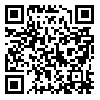BibTeX | RIS | EndNote | Medlars | ProCite | Reference Manager | RefWorks
Send citation to:
URL: http://jmed.ssu.ac.ir/article-1-465-en.html
Introduction: Clinical training of nurses forms the basis of the entire educational program. One of the controversial aspects of clinical training is method of clinical training. Peer education can be a useful adjunctive model for clinical skills training The present research was conducted to study the effect of a mentorship program on educational satisfaction of nursing students in Imam Reza Hospital of Birjand in 2012.
Methods: This quasi-experimental study was done on 60 masters nursing students of the 4th semester from the Islamic Azad University of Birjand who were randomly allocated into two groups,30 students in the experimental group and 30 in the control group. In the experimental group, there was a student of the 8th semester as the mentor for each three junior students, and in the other group, there was only an instructor available without any mentor. Educational satisfaction of the students was evaluated before and after their training with ascertained educational satisfaction questionnaire. The data was analyzed using SPSS V.18, independent t test, paired t, and chi-square test.
Results: The average of satisfaction score in the experimental group was higher than that of the control group. The difference between the mean scores of the two groups was significant (p<0.05).
Conclusion: Executing peer education program (mentorship) is more effective in increasing the nursing students' educational satisfaction. we suggest that clinical curriculum developers consider this method as a supplementary educational means .
Received: 2014/10/4 | Accepted: 2015/01/3 | Published: 2015/03/16
| Rights and permissions | |
 |
This work is licensed under a Creative Commons Attribution-NonCommercial 4.0 International License. |





